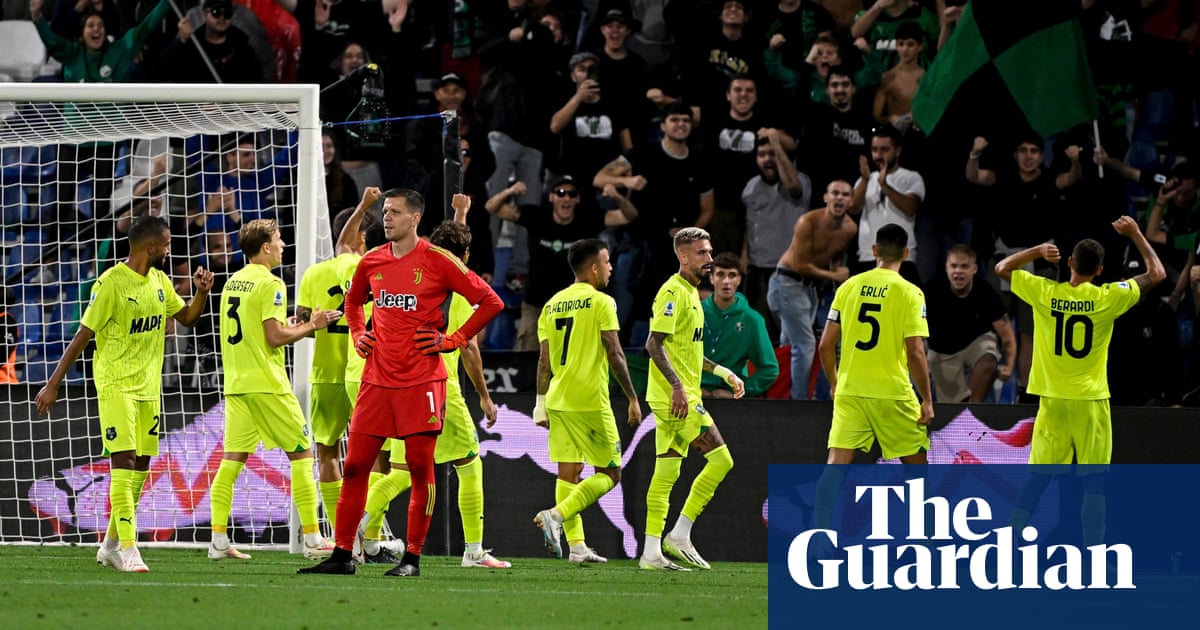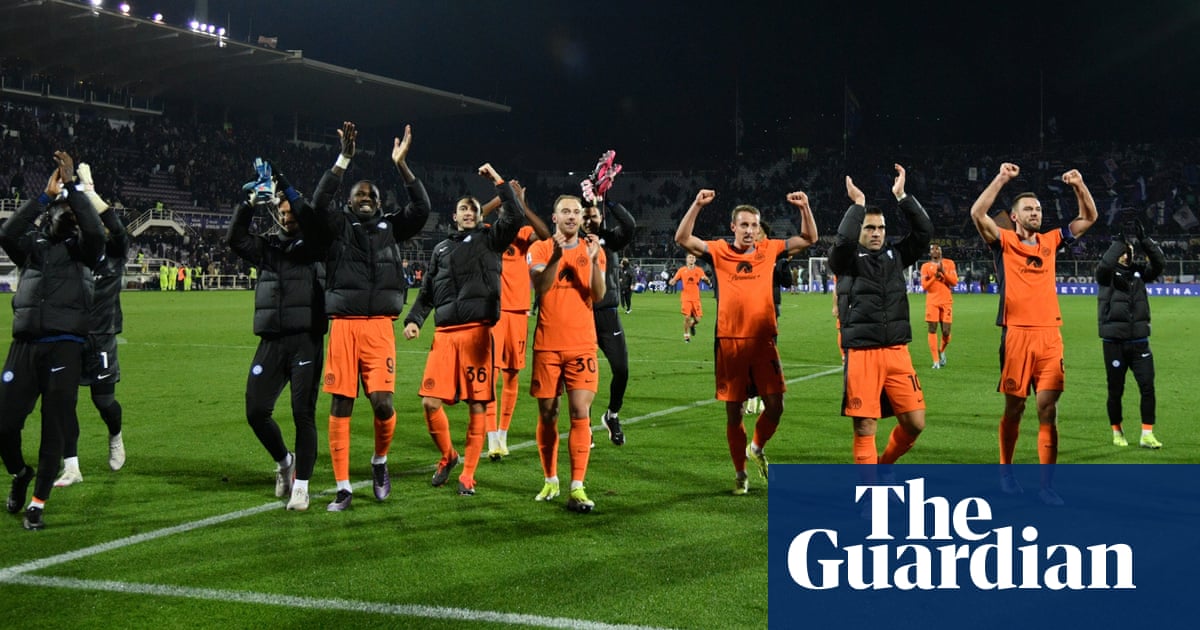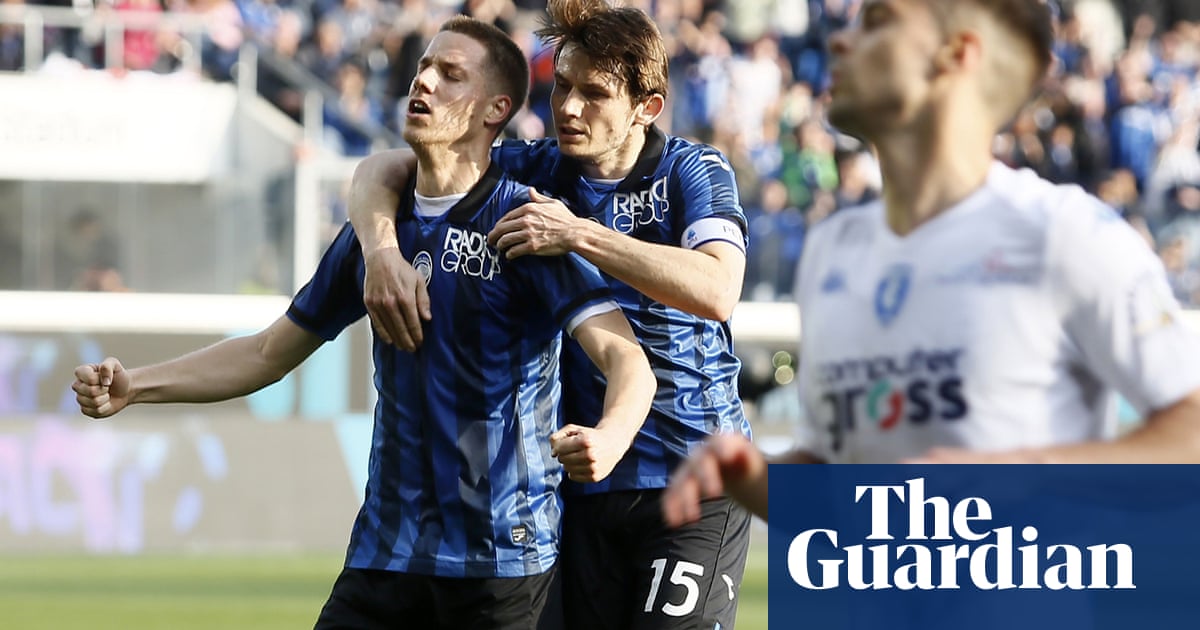
Atalanta are not getting ahead of themselves, but eight games into the new Serie A season, nobody has got ahead of them yet either. Six wins and two draws place them joint top of the table, level on points with Napoli. The Bergamo club have not trailed in any match so far.
“First place in the table is like the pink jersey in the Giro d’Italia,” said their manager, Gian Piero Gasperini last month, referencing the garment passed after each stage of Italy’s iconic cycling race to the leading rider overall. “You don’t know if you’re going to win the whole thing, but it’s not like a lot of people get to wear it, either.”
People have got used to seeing Atalanta jostling for position among the leading pack since Gasperini took over as manager six years ago. He steered them to third place and their first ever Champions League qualification in 2018-19, then landed them in the exact same spot in both of the next two seasons. Never in the club’s history, though, have they made as fast a start as this one. Ironically, the club’s best-ever manager is getting his best results yet after abandoning the tactics he believes in.
Gasperini’s previous successes were built on a courageous brand of football, daring his players to press high, play the ball short and engage in one-on-one duels all over the pitch. Atalanta scored 98 Serie A goals in 2019-20 and 90 the season after. “If you want to win you need to score goals,” he said last month. “There is no other possibility.”
After slipping to eighth last season, however, and scoring only 65 times, he was forced to reconsider his approach. Gasperini had been frustrated at the club’s failure to strengthen the attack last summer, bemoaning a lapse into complacency. In his opinion, positive results had caused too many people to miss the gaps left in a squad that sold club captain Papu Gómez at the start of the year. Josip Ilicic, who scored 21 times in 2019-20, including a famous four-goal haul away to Valencia in the Champions League last 16, had effectively been lost as well, starting only a handful of games as he dealt with personal issues.
Gasperini thought about stepping down, accepting this as the end of a cycle. It was the affection of the fans, he says, that persuaded him to stay, but he could not keep doing the same things and expecting a different result. He chose the path of pragmatism, developing a more cautious tactical approach designed to help his team concede fewer goals since they were no longer capable of scoring as prolifically as they used to.
Where once they pressed relentlessly high, this season’s Atalanta often sit in a low block, clogging up the space and waiting for opponents to creep forward and leave gaps behind. Atalanta are playing fewer passes per game than they ever have under Gasperini and almost a fifth of those that they do play are long balls. In each of the past four seasons, it was more like one in 10.
Even as the manager continues to insist that this is not his preferred way to play, his team keeps getting results. Atalanta had already drawn with the champions Milan and won away to José Mourinho’s Roma. On Sunday they extended their unbeaten start with a 1-0 victory over Fiorentina.
In Gasperini’s pre-game analysis, matches against these opponents “have always been fundamental in qualifying for Europe”. Last season, the Viola beat Atalanta three times – winning both league matches and knocking them out of the Coppa Italia. Here, Atalanta would be well worth their victory. Like a boa constrictor they suffocated their opponents and then devoured them, winning it with a goal from Ademola Lookman. You could be forgiven for wondering whether Fiorentina’s defenders had indeed passed out for the way they simply failed to mark the winger as he poked home Luis Muriel’s cross in the 59th minute.
The visitors’ defending was woeful at times, and only an extremely poor finish from Joakim Mæhle saved them from further harm after he was allowed to run through on goal uncontested. Even so, this was a show of strength from an Atalanta team who were missing first-teamers in just about every area of the pitch – from Juan Musso in goal to José Luis Palomino in defence, Davide Zappacosta at wing-back and Duván Zapata up front.
This was another occasion to marvel at the consistent productivity of Atalanta’s youth system. The 21-year-old academy graduate Caleb Okoli, back in Bergamo after loan spells with Spal and Cremonese, did a stand-out job of neutralising Fiorentina’s centre-forward Christian Kouamé, while his 18-year-old defensive partner Giorgio Scalvini was almost as impressive alongside him. Their understanding helped Atalanta to maintain the tightest defence in Serie A, with just three goals conceded in eight games.
It was a blend of old and new that proved decisive at the other end, Muriel dribbling past two players before squaring the ball to Lookman for the goal. Gasperini had encouraged his forwards to spread wide, pulling the Fiorentina defence apart, and it was the Colombian who danced most effectively through the spaces in between.
Lookman is settling nicely. This was his second goal since joining from Leicester in the summer – and in his own head it feels more like three, after his deflected shot against Monza was recorded as a Marlon Santos own goal. “I was a bit disappointed they took one away from me,” he said on Sunday, “But what matters today are the three points.” His latest strike was only a tap-in, but it demonstrated that Lookman is taking on Gasperini’s instruction, drifting in from the flank to arrive in the box at just the right moment – a move we have seen from so many other wide players in the manager’s systems before.
Atalanta never replaced the individual talents of Gómez or Ilicic, whose contract was terminated by mutual agreement last month, but their depth is noteworthy. The manager was able to call Mario Pasalic, a player with 42 caps for Croatia, as well as Mæhle, Denmark’s joint-top scorer with five goals in World Cup qualifying, off the bench at the start of the second half.
On the pitch, Atalanta are exceeding all expectations. Off it, there is work to be done. Fiorentina’s general manager Joe Barone has demanded action after his club’s owner, Rocco Commisso, was subjected to territorial discrimination by home supporters before kick-off. Born in Sicily and the south of Italy respectively, both men grew up in the United States. “Today we witnessed a shameful episode, not from one individual but a whole stand,” said Barone in a statement. “We fought against racism in America and today here in Italy we were subjected to an unacceptable situation. We are disgusted and we expect severe measures.”
Barone has raised the matter with the league, Italian Olympic Committee, and the government. The issue of territorial discrimination is neither new to Italian football nor exclusive to Bergamo, but he would like to see this moment become a starting point for change.












